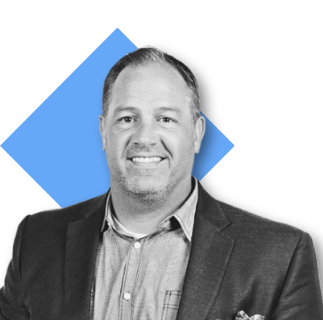Tyler York is an entrepreneur and marketing professional with a proven track record as a problem solver and organizational leader. In his over 12 years of experience in startups, mobile gaming, and education, Tyler has brought dozens of products and services to market that generated hundreds of millions of dollars in revenue. Tyler is inspired by connecting customers with products that they love and that help them reach their goals. He is the founder and Chief Executive Officer of Achievable, a test prep company that uses technology to help people ace the opportunity-gating exams that stand between them and their future.
Company: Achievable
We are thrilled to have you join us today, welcome to ValiantCEO Magazine’s exclusive interview! Let’s start off with a little introduction. Tell our readers a bit about yourself and your company.
Tyler York: I’m Tyler York, the co-founder and CEO of Achievable, a test prep platform built to help people conquer the high-stakes exams that open doors to their future. I have over 12 years of experience in startups, mobile gaming, and edtech, most recently running marketing for a $100M/year mobile game franchise at Electronic Arts. Across my career, I’ve led the launch of dozens of products that have generated hundreds of millions in revenue in total.
At Achievable, we use personalized learning and AI technology to make studying more effective and accessible. I’m passionate about helping people achieve their goals, whether that be to get into their dream college, get the required license for their dream job, or upgrade their career with advanced certifications.
Can you share a time when your business faced a significant challenge? How did you navigate through it?
Tyler York: In 2018, the vast majority of our revenue was from B2B contracts supporting learners as they took the FINRA (the Financial Industry Regulatory Authority) Series 7 exam. We faced a major shift when FINRA split up the Series 7 exam, creating a new entry-level test – the FINRA Securities Industry Essentials exam, or SIE exam – that was comprised of the first ‘half’ of the Series 7 and, most importantly, didn’t require firm sponsorship. This fundamentally changed the market. Previously, finance firms purchased test prep for their new hires, but now students could buy it directly and prepare before even applying. The goal was to have most financial industry applicants get their FINRA SIE license before applying for Wall Street jobs to pre-qualify them.
This immediately presented a significant challenge to our business, as most of our customers decided to wait and see about the new format, and we lost most of our revenue. However, with that challenge, we also saw an opportunity: pivot from B2B to B2C, play to our strengths in product and marketing, and meet learners where they were online. So, we rebuilt our product from the ground up to be a freemium, consumer-ready product for the FINRA SIE exam, and that decision laid the foundation for the strong, fast-growing business we have today.
How has a failure or apparent failure set you up for later success?
Tyler York: One of our biggest early failures turned out to be the best thing that ever happened to us. When we first launched our FINRA Series 7 product, we went B2B – selling to financial firms. But we struggled. The sales cycle was long, the buyer and the end user weren’t the same, and it was hard to get traction. Then FINRA introduced the SIE exam, which learners could take independently. We saw an opening to pivot to B2C, rebuilt our product for individual learners, and found strong product-market fit. That success didn’t just validate our approach – it gave us the foundation to expand. Today, we’ve not only grown our B2C offerings across FINRA exams and other exams like the GRE, ACT, CLT, and USMLE Step 1, but we’ve also re-entered B2B stronger than ever. We now offer successful institutional solutions for the FINRA SIE, Series 6, 7, 9, 63, 65, and 66. That early failure taught us to focus on the learner first, and it’s shaped everything we’ve built since.
How do you build a resilient team? What qualities do you look for in your team members?
Tyler York: Building a resilient team starts with finding people who truly believe in the company’s mission. At Achievable, we help people overcome the high-stakes exams standing between them and their goals. When team members are motivated by that purpose, they bring extra grit and creativity to tough challenges.
Being fully remote has also been a huge advantage. It allows us to hire the best people, regardless of location, and gives our team the flexibility to work in the way that’s most productive for them. It also makes a job more appealing and that lifestyle flexibility helps people stick with you through any challenges. But remote only works well when there’s strong cultural alignment. We look for people who are self-driven, collaborative, and just genuinely good to work with. Culture fit and shared values are what carry us through uncertainty and keep us moving forward together.
How do you maintain your personal resilience during tough times?
Tyler York: During tough times, I anchor myself in our mission and vision. Knowing that the work we’re doing at Achievable genuinely helps people overcome major hurdles in their lives keeps me motivated. It’s incredibly grounding to remember that our success directly translates to someone else’s benefit. One of the reasons I love working in education is because of the long term impact it can have on the people you work with.
I also try to keep a long-term mindset. Resilience, to me, is about perspective: staying centered on the bigger picture, learning from setbacks, and showing up consistently with optimism. I’ve worked in startups for 13 years now. Most of the ones I worked at experienced significant challenges at one point or another, and a few of them eventually went out of business. I saw through those experiences that not every day or week is going to be a win, but progress compounds over time. You are trying to create something new, and that requires both you and your potential customers taking a leap of faith.
What strategies do you use to manage stress and maintain focus during a crisis?
Tyler York: When I’m in a crisis, the first thing I do is break the problem down into smaller, manageable pieces. Big crises feel overwhelming, but once you map out a response plan with clear, achievable tasks, it becomes a lot easier to focus and take action. I rely on task management tools to stay organized and prioritize what matters most in the moment. It also helps me feel like I am tackling the crisis instead of it overwhelming me.
I also remind myself that I’ve been through hard things before and I’ll get through this too. It’s rarely as bad as it feels in the moment, and even worse moments have been survived. I even think about some of the big corporate or personal crises that I’ve seen on the news or social media – those people all survived too, and some have thrived since then. That mindset shift helps lower the stress so I can think clearly, stay calm, and keep moving forward.
How do you communicate with your team during a crisis?
Tyler York: During a crisis, I believe it’s critical to be upfront and transparent with the team. People can handle bad news, but what creates real anxiety is feeling like they’re in the dark. I focus on clearly explaining what’s happening, what it means for the company, and, most importantly, what we’re going to do about it. I think it’s crucial to always pair transparency with a path forward. Even if the plan isn’t perfect yet, showing that we’re actively working on a solution helps keep morale up and prevents panic. The goal is to create clarity, maintain trust, and keep everyone aligned and moving together through the challenge.
What advice would you give to other CEOs on building resilience in their organizations?
Tyler York: My biggest piece of advice is to build your organization around a clear mission and strong values – those are what carry you through tough times. When your team believes in the “why” behind the work, they’ll be more likely to stay motivated and stick with the company even when things get hard.
Also, resilience starts with how you operate day to day. Create a culture where challenges are expected, feedback is welcomed, and progress is measured by learning, not just outcomes. Being transparent, especially in uncertainty, shows that not everything is rosy all the time, even for the leadership team, and challenges are a normal part of running a company. And lastly, make sure your team knows you trust them to get through any crisis together. That trust, shared purpose, and openness are what turn a group of individuals into a resilient team.
How do you prepare your business for potential future crises?
Tyler York: Preparing for future crises starts with building a business that’s agile and disciplined. At Achievable, we try to operate every day with strong fundamentals: clear priorities, lean operations, and a team that’s aligned on the company’s goals. That way, when challenges hit, we’re already in a good position to pivot or make adjustments.
We also plan proactively. We think through different “what if” scenarios every quarter and develop high level plans for each one. This helps in three ways: you have a sense for what crises could occur, you have a sense of the seriousness of different types of crises, and you have a plan to build off of to help you quickly pivot in the event of a crisis.
Most importantly, we invest in our people and culture. A resilient, motivated team can weather almost any storm if they trust each other, believe in the mission, and know how to execute under pressure.
What’s the most important lesson you’ve learned about leadership in times of crisis?
Tyler York: The most important lesson I’ve learned about leadership in a crisis is that people look to you for stability, not perfection. You don’t need to have all the answers, but you do need to show up with clarity, calm, and conviction. Being honest about the situation, while also projecting confidence in the path forward, builds trust and keeps the team grounded and on mission. Crises test your systems, but more than that, they test your believability as a leader. If you can communicate clearly, stay focused on your values, and keep moving forward with purpose, your team will follow – even through a crisis.






